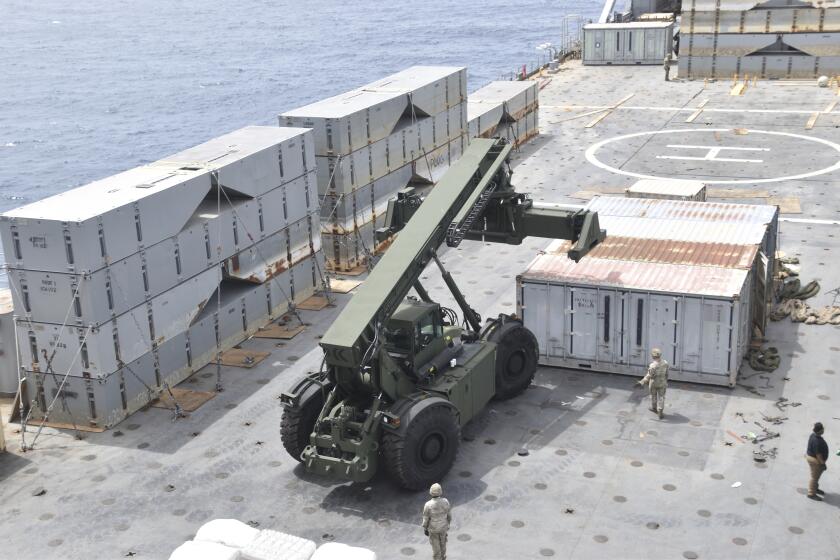Syria Looks to Cut a Golan Deal : In the process it revives Middle East talks
Well into their fourth year of talks about whether and how they can make peace, Israel and Syria appear finally to have achieved a procedural breakthrough that brings the chance of substantive success closer.
By at last agreeing on terms for discussing concrete security arrangements on the Golan Heights the two countries have broken a fundamental deadlock. Secretary of State Warren Christopher, who along with his top Middle East aide, Dennis Ross, seems to have been very helpful in bridging this great gap, prudently warns that much hard work and many pitfalls lie ahead. But at least now the antagonists have shown they are willing to set their feet on the same path.
Israel’s government has already begun preparing public opinion for a withdrawal from the strategic heights, which before Israel’s victory in the 1967 war served as a platform for regular Syrian shelling of northern Israel.
Prime Minister Yitzhak Rabin has hinted at a full pullback under carefully drawn conditions, though he says withdrawal of military units and civilian settlements would come only after a national vote approved his plan.
Now Foreign Minister Shimon Peres has made the government’s intent explicit. In exchange for a full peace, he says, Israel would leave the Golan. Well and good. It will be clear that real advances are being made, however, only when Syria’s own tightly controlled press is told to begin preparing Syrians and the rest of the Arab world for the prospect of peace after nearly half a century of conflict.
The objectives of the two sides in these negotiations have been clear from the beginning. President Hafez Assad insists on regaining sovereignty over all of the Golan, just as Egypt regained sovereignty over all of the Sinai Peninsula when it made peace with Israel in 1979.
For political reasons, that would have to be done, as Egypt did it, within three years after an agreement is signed. Israel on its part would give up the territory in exchange for what it calls a full or normal peace--diplomatic relations, trade, tourism and the like--and tightly crafted security measures to prevent the Golan from again being used to threaten Israel.
The nature of those measures, including how far back each side would pull its troops and what on-the-ground monitoring would be required, is at the core of the new talks that are to begin in Washington next month. Look for a probable expanded U.S. role in those negotiations, the most promising yet between Israel and Syria.
More to Read
Start your day right
Sign up for Essential California for news, features and recommendations from the L.A. Times and beyond in your inbox six days a week.
You may occasionally receive promotional content from the Los Angeles Times.






